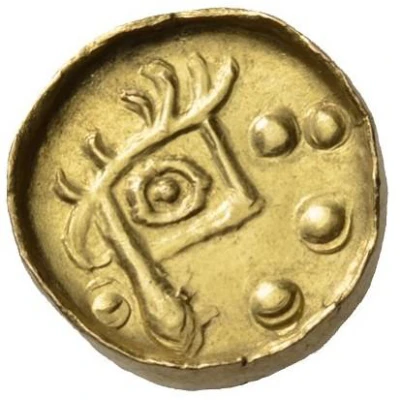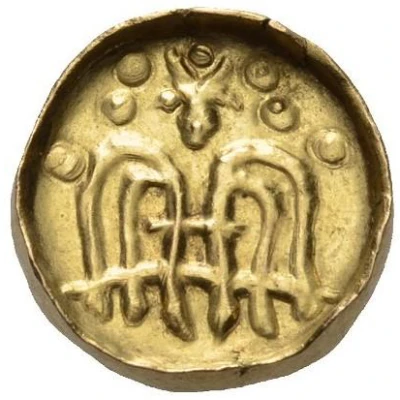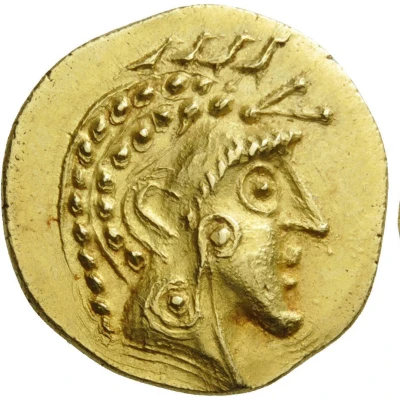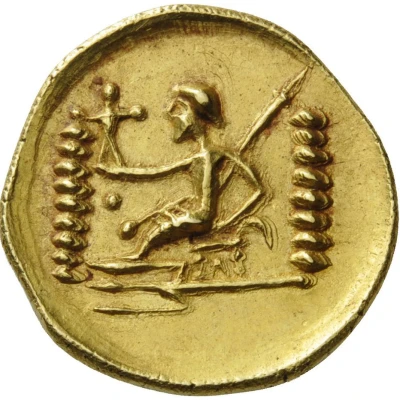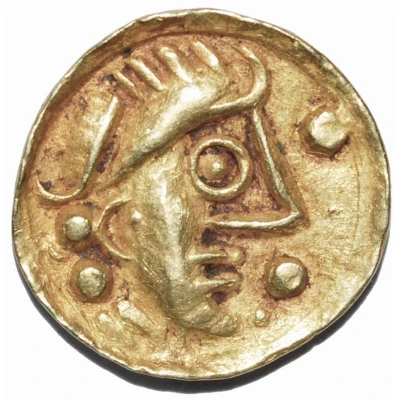
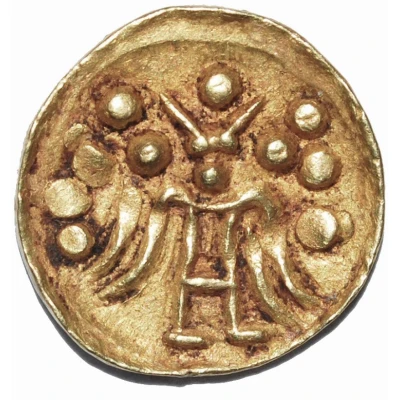

© Zeus Numismatics
Stater - Alexander III Kolchis imitation 100 BC - 200 AD
| Gold | 3.34 g | 13 mm |
| Issuer | Bastarnae Celto-Scythians (Central and Eastern Europe (ancient)) |
|---|---|
| Type | Standard circulation coin |
| Years | 100 BC - 200 AD |
| Value | 1 Stater = 20 Drachm |
| Currency | Stater |
| Composition | Gold |
| Weight | 3.34 g |
| Diameter | 13 mm |
| Shape | Round (irregular) |
| Technique | Hammered |
| Demonetized | Yes |
| Updated | 2024-10-09 |
| Numista | N#190042 |
|---|---|
| Rarity index | 95% |
Reverse
Stylized Nikè standing facing flanked by two pellets.
Edge
High hammered edges.
Comment
Imitating Alexander III the Great (336-323 BC).References:
• N. Frolova, Caucasian Imitations of Alexander and Lysimachus′ Golden Stater, Studies Touratsoglou, pp. 127-133, pl. II, 3 var.
• Zograph, plate XII,18 Cf.
• D.M. Lang. Studies in the Numismatic History of Georgia in Transcaucasia. NNM 130. New York. 1955. page10, 4A (Plate I,6) Cf.
∙ B. Ziegaus. Kelten Geld: Münzen der Kelten und angrenzender nichtgriechisher Völkerschaften. Sammlung Flesche. Munich. 2010. P. 228, fig. b.
∙ R. Paulsen. Die Ostkeltischen Münzprägungen: Die Münzprägungen der Boier mit Berücksichtigung der borboiischen Prägungen. Vienna. 1974. #46
∙ A. Sergeev. Barbarian coins on the territory between the Balkans and Central Asia : catalog of Andrei Sergeev's collection at the State Historical Museum (Moscow). Moscow. 2012. #598
Interesting fact
One interesting fact about this coin is that it is an imitation of a coin originally minted by Alexander the Great, but was actually produced by the Bastarnae Celto-Scythians, a group of nomadic people who lived in Central and Eastern Europe during the ancient period. Despite being an imitation, the coin still holds significant historical value and provides insight into the cultural exchange and trade practices of the time.
